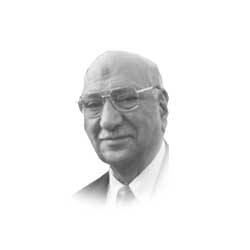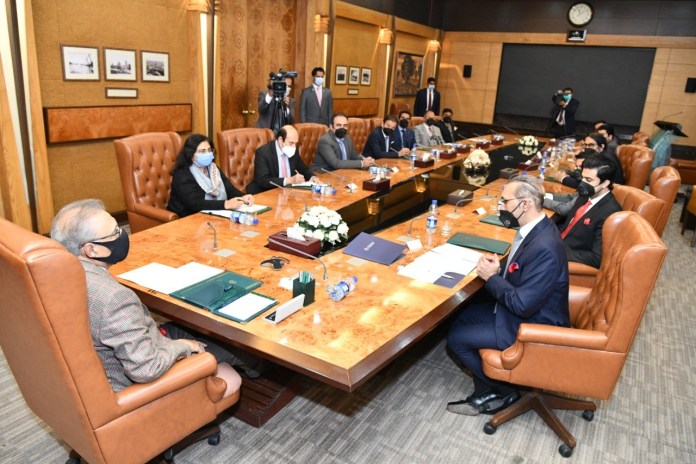By: Askari Raza Malik
“The concept of the imperceptible is a decisive factor distinguishing man from animal”, said Syed Qutab. Translated in Muslim spiritual parlance, it is God consciousness or Taqwa. It provides a strong defence against the baser human instincts of slipping back into animalism or Jahiliya, characterized by unbridled greed for zar, zan and zameen, (wealth, women and land).
A religion must have element of ‘the Holy’ as its central theme – the Holy God, the Holy Prophet. All religions create a culture. An ‘ism’, a philosophy or an ideology also moulds life into a certain pattern like ‘Socialism’ and creates a culture of its own, but has no spiritual claims. It is the religion alone that creates and demands the awareness of the imperceptible. The three Abrahamic religions have the essential of ‘holy’ as the focal point in their religious lexicon. This is what creates the difference between a believer and a non-believer.
Man makes laws as a social necessity. God has made laws to govern the universe. Physical or scientific laws like gravity; these are inviolable, compelling and control the universe. A parallel set of laws, ‘the spiritual laws’ are contained in the scriptures. These are not immediately applicable but remain unescapable. Their manifestations are slow, subtle but sure. People describe these as ‘Poetic justice’, ‘Divine Justice’ or ‘deus ex machina’.
The scriptures, the Prophets and the saints elaborate the spiritual laws as Divine principles and traditions. God emphasizes, “And never will you find in the way of Allah any change” (48:23). Patience is His essence. He has granted us unlimited personal freedom. We make the choice, Good or Evil, Honour or disgrace.
To deliberately sin is to defy God. While in rebellion a Momin ceases to be a believer. Persistence with the sin triggers off repercussions, reactions opposite and equal to the actions. We learn that arrogance results in ignominy; adultery invites violence and usurpation of others’ rights ushers in misery and disorder.
Corruption is a multi-dimensional evil. It defies Allah and His Prophet (PBUH) and also flouts public laws. It is coercive, exploitative and when it comes to embezzlement of public exchequer, it adds another heinous side to it – breach of a sacred trust. Worst of all, it creates unnatural inequality.
The family of the corrupt suffers multiple psychological and spiritual wounds. It induces a false sense of wellbeing in the family directly affecting the children’s psychology, drastically reducing their pain thresh-hold and resilience. It causes inexplicable moral and physical degradation in the coming generations. The absence of God’s grace is evident in the life of the corrupt. Happiness and peace of mind deserts him and his loved ones.
According to the Prophet (PBUH), a leader or ruler is like a shepherd for his people. His entire focus is to safely lead his flock to greener pastures. In Islam, a ruler is only a trustee of the resources that actually belong to his people. He is allowed to spend on himself only the minimum for subsistence. Hazarat Abu Bakr while dying returned all the stipend drawn from Bait-ul-Maal as he thought he could have actually lived without it. Jinnah drew only one Rupee as token salary, because he had enough of his own to meet his personal expenses. A corrupt Muslim ruler is doubly unfortunate as he has to be answerable to God and also his people.
We commit excesses on others. We derive material and sadistic pleasure. Allah says we instead excess against ourselves. “Tell them, (O’ Prophet): “My servants who have committed excesses against themselves” (39:53). All the evil and good we invest is returned with interest. How and when? Individual experiences vary. One has to keep eyes wide open. Usually, indicators come as warnings until the inevitable strikes. Then it is too late to repent.
The enormity of Natural Forces around us makes us feel helpless, mere slaves of a pre-destined scheme. The notion is downright passive, pitiful. We live in a neighborhood and follow its by-laws. On our planet we must also obey God’s laws for continued human existence. God gives all the rope to a man, to either hang himself with it or enjoy playing by the rules of the game. It is absolutely freewill. Dumping every good and bad on the destiny is running away from our responsibilities. Some occurrences, like where we are born are not in our control but are insignificant. History is replete with examples where the men of humblest of birth rose to everlasting glory and the noblest were lost in oblivion.
Rituals according to Maulana Maudodi are the physical manifestations of Islam. The ‘Din’ containing social, moral and human obligations is the ‘Soul’, the driving force. Today our body throbs but the soul is dead.
Corruption is compromise. When compromise pervades, the purpose of life becomes nebulous. Baser human instincts take control, the consciousness of the ultimate reality becomes meaningless and man is back to animalism. Animalism is a harbinger of destruction, the scriptures warn.
An early morning visitor to Baghdad would hear a melodious humming rising from the city towards the skies, recitation of the holy Quran. All the recitation, night worship and fasting could not save the Muslims from the most shameful and devastating defeat at the hands of the Mongols.
Corruption is just not one of the killer diseases. It is a deadly cancer for the society. It nurtures coercion, exploitation, oppression, inequality, lawlessness, insecurity and injustice. Without justice a country is worse than ‘the Animal kingdom’.
Pakistan is galloping towards the precipice. All those who matter, the judiciary, executive, parliament, law enforcement and the media must join hands together to counter the menace. Animalism can only be eliminated with extraordinary, unconventional, ruthless and extreme measures, not with the laws of a civil society.
Major General (retd) Askari Raza Malik is author of “Pakistan in Search of a Messiah”








